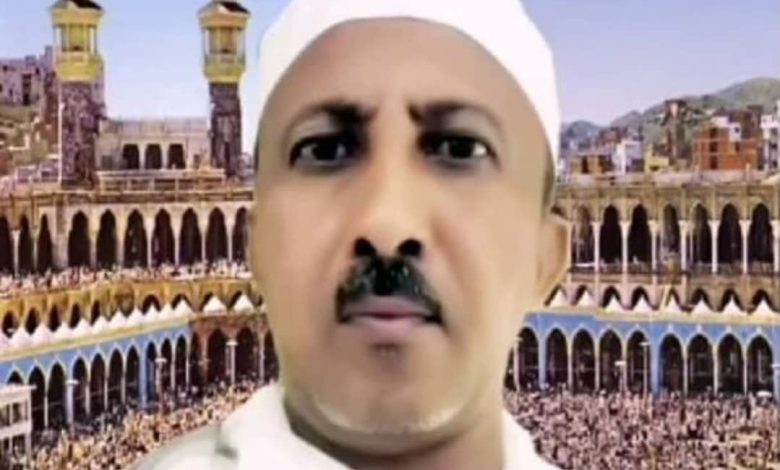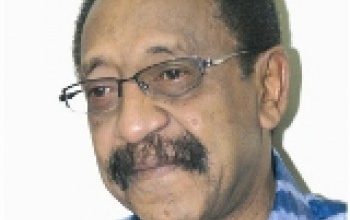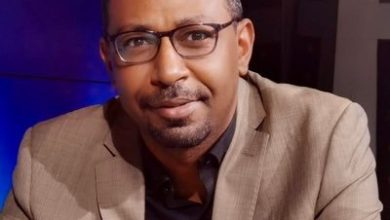Opinion
My Advice to God After 70 Years of Sudan’s Independence

By: Abu Bakr Al-Sharif Al-Tijani
In the name of God, we begin, and we follow the example of our Prophet Muhammad (PBUH). Advice is a great thing, and only a great person can accept it. Our righteous ancestors followed the Prophet (PBUH), for he is the light by which they guided themselves, the true mirror in which they saw their souls, shapes, and images. Therefore, they did not go astray, for a false mirror might reflect your image upside down, meaning you may see your right as your left and vice versa. This is similar to the advice most people sometimes give – it is false, like a distorted mirror.
However, the mirror of the Prophet Muhammad (PBUH) is the clear path, as clear as daylight. His advice is true. Likewise, the mirror of a believer to his brother is true because it reflects the light of the Prophet (PBUH). Thus, they were sincere in their advice to each other, accepting it without arrogance or pride.
Sudan After 70 Years of Independence
Now, we are marking seventy years since Sudan’s independence, independence from colonial rule. But in reality, it was a time when Sudan was exploited by its own children who inherited it from the colonizers.
We hoped that the seventieth anniversary of Sudan’s independence would be a time to see our country standing tall, strong, and proud among the nations that had gained their independence. However, after two generations since independence, we find that our legacy is nothing but destruction, devastation, and conflicts. Fundamental issues regarding the governance system have not been resolved, and the country continues to suffer from struggles for political power, with parties that are ineffective and unable to meet the people’s needs.
The Sudanese people claim to be the “teachers of revolutions,” but they have not truly understood their own identity. They do not fully grasp the nature of revolutions. The West, which publicly shows its support, in fact mocks the minds of our people because they know that the countries in the Third World that gained independence have not yet reached the level of democracy and absolute freedom that would allow them to govern themselves. These countries, including Sudan, are running after an illusion that is incompatible with their customs, traditions, and culture.
He Who Lacks Something Cannot Give It
An American-born Muslim visitor, Abdulkarim Paul Niron, once told me that in the 1990s he met Sadiq Al-Mahdi in his home after his regime was overthrown. The discussion was about democracy in Sudan. One amusing point he mentioned was that Sadiq Al-Mahdi told him: “This people can only be ruled by force, and they want the military, as was the case with President Jaafar Nimeiri.” May he rest in peace.
Recognizing the truth is the only way to reach a goal that will bring us happiness and peace of mind. The West understands very well that some countries, which gained their independence, require strong and strict military rule to achieve stability. But the West does not want stability for us. Instead, it seeks democratic models of governance that are not suitable for our peoples, parties, and cultures, leaving us to spiral into chaos and revolutions that they find amusing at our expense.
Monarchy and Political Stability
It is noteworthy that the supporters of a strict military rule to end political chaos often point to the monarchy system in the Arab countries. The monarchy is similar in nature to a strict military system. These systems do not allow for political chaos, which is why they tend to be more stable, developed, and prosperous compared to countries whose peoples demand democracy and civil governance.
The West tries to force us into this political illusion, while some Arab and African countries have recognized the truth, and therefore, they have only been ruled by strong military power to ensure political stability first and then economic stability.
The Sudanese people, who are called “the teachers of revolutions,” seem not to have realized that these revolutions they boast about are merely chaos that the West desires for them. After the fall of General Abboud’s regime, the Sudanese people shouted: “We lost you, and we are in a worse position now.” This is the “teacher of revolutions” caught in a vicious cycle.
The Solution: Reconciliation Between Civilians and the Military
Why don’t civilians reconcile with the military to establish a strong and strict military government, with a National Assembly formed by enlightened members of Sudanese society to create legislation and oversee the work of the Cabinet? The solution also involves forming a Cabinet of competent technocrats who work under a military government with a president. This system is the most suitable for third-world nations.
Some countries have even resorted to hereditary rule to ensure continuity and stability, like monarchical systems. Seeking an elected civilian government and political parties will only take us back to the same vicious cycle we are experiencing now.
Recognizing this truth and working accordingly is the only way to achieve political and economic stability.
Will We Understand the Lesson?
And God is the source of help.
Peace be upon those who follow the guidance.



